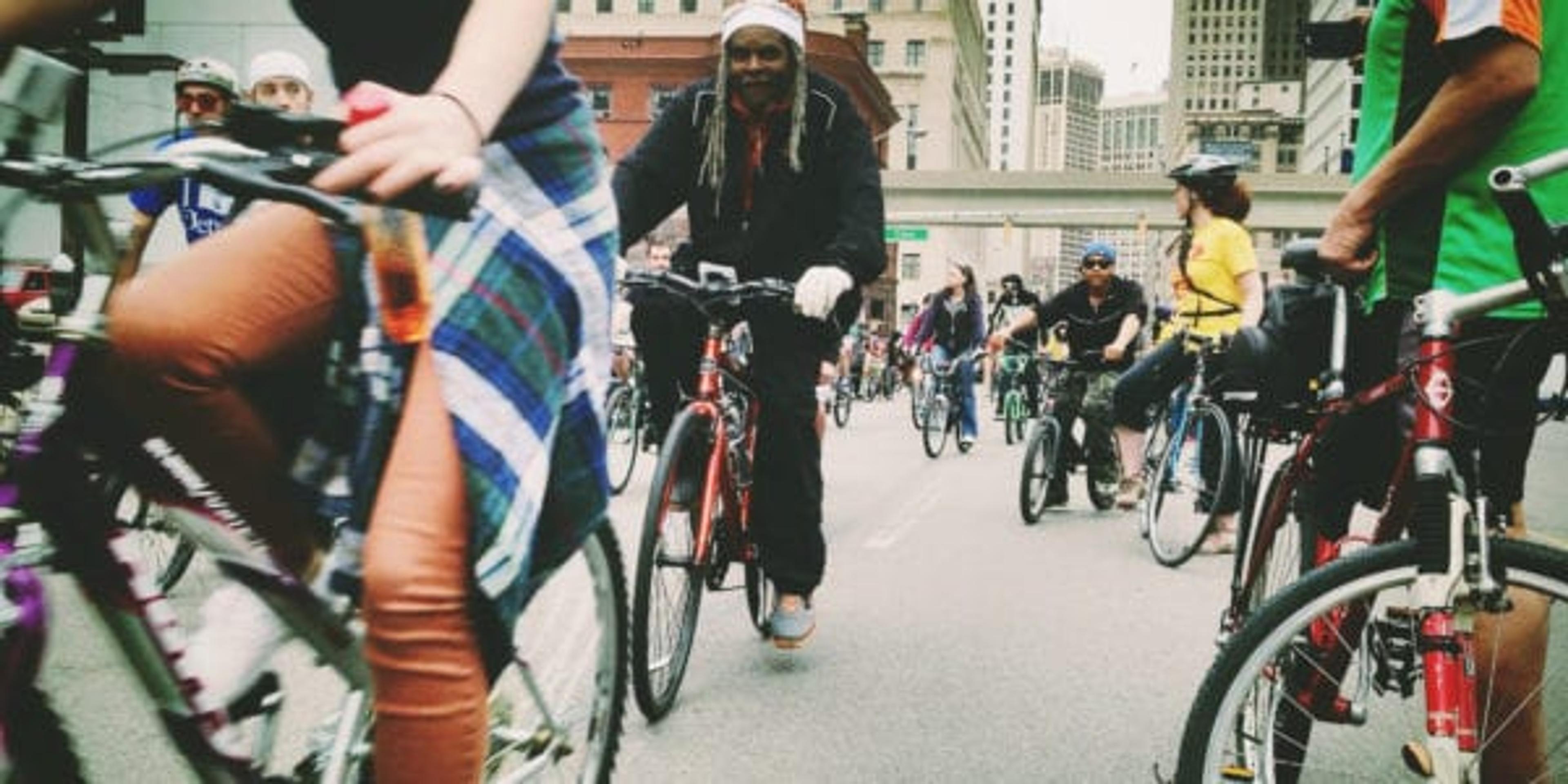Mission in the Making: Slow Roll Detroit Looks to Expand Reach, Impact

Julie Bitely
| 3 min read

Slow Roll Detroit is in an enviable position for a non-profit.
The organization has thousands of people who show up to their weekly bike rides, listen to what they have to say and open their emails.
Now, the group is working to use their human capital for good. They’re actively seeking non-profits and causes to partner with.
“We’re doing this backward,” said Kelsey Hubbell, who was brought on last August as the organization’s first designated staff person.
What Hubbell means is that most non-profits start with a cause. Slow Roll started out as a group of friends who wanted to ride their bikes and explore more of their city, albeit slowly.
Entering their seventh season, the group attracts anywhere from 3,000 to 5,000 people and their bikes every Monday evening. In 2016, Slow Roll grew to over 12,000 registered riders, with people from all over southeast Michigan and beyond making the trek. Some riders come from as far away as Toledo and Windsor.
Hubbell describes it as a party on bikes. People have met their spouses at the weekly rides. A group of widows found each other and ride together on Monday nights as a sort of impromptu group therapy. Thousands of people of all persuasions come together despite their differences and truly, exuberantly enjoy the experience, Hubbell said.
“It really is fun. A lot of people started out back in the day and they’ve seen it grow so they feel this attachment to it and this ownership of the ride,” she said.
Hubbell has been riding with the group since before it was official and she’s excited about what the future holds. Along with co-founders Jason Hall and Mike MacKool, she’s been working to connect the organization to city initiatives and other non-profits that could benefit from Slow Ride’s massive following. Exposing riders to causes in the city is part of the future vision for the non-profit.
“We know that we have this unique platform and this unique voice to speak on behalf of other initiatives that might not have as loud of a voice,” she explained.
What that means is still up for grabs – Hubbell describes this as a learning year for the group, which is actively looking for opportunities to partner. There are so many directions that could be a natural fit and progression – health and wellness or sustainable transportation are two that Hubbell mentions. Still, if it doesn’t connect with the riders who make it out most Mondays of the Slow Roll season, it might not be a good fit, which is why Hubbell said rider engagement is key as they move forward.
“What do our riders connect to, what do they care about,” she pondered.
This summer, the organization will partner with local food banks, asking riders to bring non-perishable items to the rides and to consider volunteering on their own.
Regardless of the causes and partnerships that develop, the slow, relaxed vibe of Slow Ride will remain the same. While this week’s ride will take riders through Belle Isle and the Grand Prix course, organizers are equally committed to scheduling weekly rides that take participants through Detroit neighborhoods still struggling to come back from economic hardship.
Hubbell said when the bikes go through with lights and music playing, everyone comes out of their houses and waves, helping riders find beauty and connection in every corner of Detroit.
If you enjoyed this post, you might also like:
Photo credit: Russ





